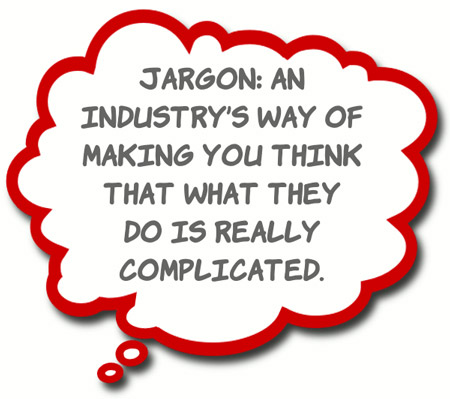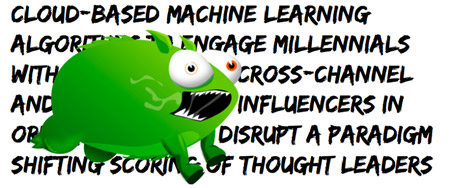Using Jargon – don’t do it!

Google will tell you that ‘Jargon‘ is a noun and means “special words or expressions used by a profession or group that are difficult for others to understand”. Some people say it’s professional slang. You hear jargon every day, sadly, usually at work. If you have ever spoken to customers, suppliers or colleagues in the UK or USA and heard them say things that seem to have no meaning, it was probably jargon.
In some circumstances it can be useful, but most people hate it. In a recent survey in the UK, workers were asked for examples of jargon that they heard, and which phrases or words they hated the most. The list below shows the 12 most hated expressions, and their definitions.
Common Jargon
- “Touch base”. Translation: To meet or talk about a specific issue
- “Blue sky thinking”. Translation: Unrestricted creative thinking without boundaries
- “We’re on a journey”. Translation: Highlighting that a company, team or project has not yet reached its mission or objective
- “Game changer”. Translation: A product, idea or process that represents a significant shift in thinking or way of doing things
- “No-brainer”. Translation: Claiming that something is an obviously good idea
- “Thought shower”. Translation: A meeting to share ideas, often without considering practical limitations
- “Run it up the flagpole”. Translation: To present an idea and see if it generates a favourable reaction
- “If you don’t like it, get off the bus”. Translation: Implying that a colleague should leave a company if they are unhappy
- “Mission statement”. Translation: A stated “reason for being” in respect of a company and its activities
- “Pick it up and run with it”. Translation: To continue an activity or process that someone else has started, often when that person could not finish it or make it work
- “Punch a puppy”. Translation: To do something horrible for the greater good
- “Let’s get our ducks in a row”. Translation: To align a team or multiple parties in preparation for an event or discussion.

Strangely, people often use these expressions without knowing what they mean. This includes native-speakers. It’s the same as people on TV who ‘casually’ drop English words into Italian conversation in an attempt to sound sophisticated, but don’t really know what the words mean. They think they sound ‘cool’ but more often sound stupid…! So, even if you learn these definitions and can use these phrases perfectly, DON’T DO IT!
